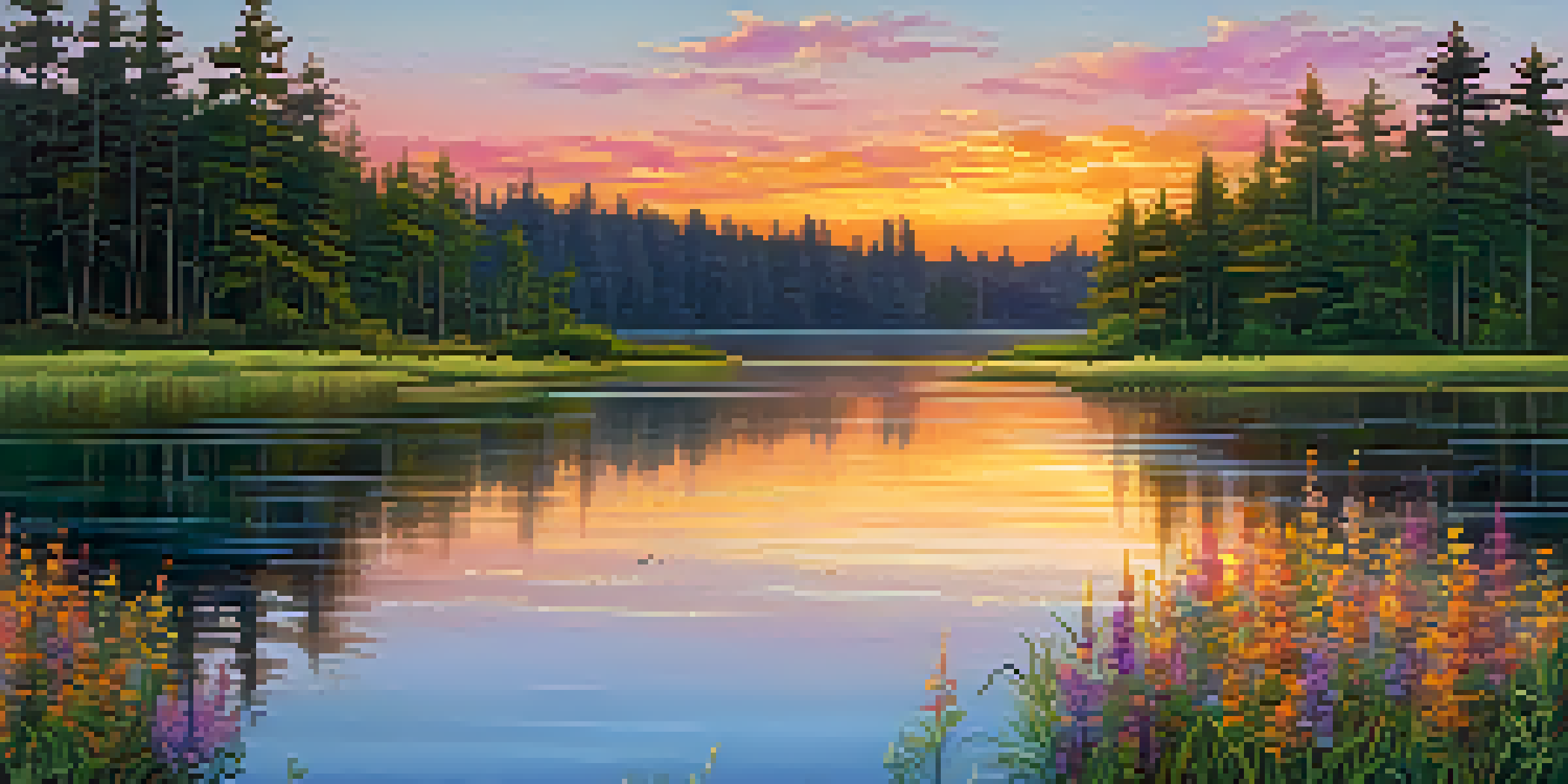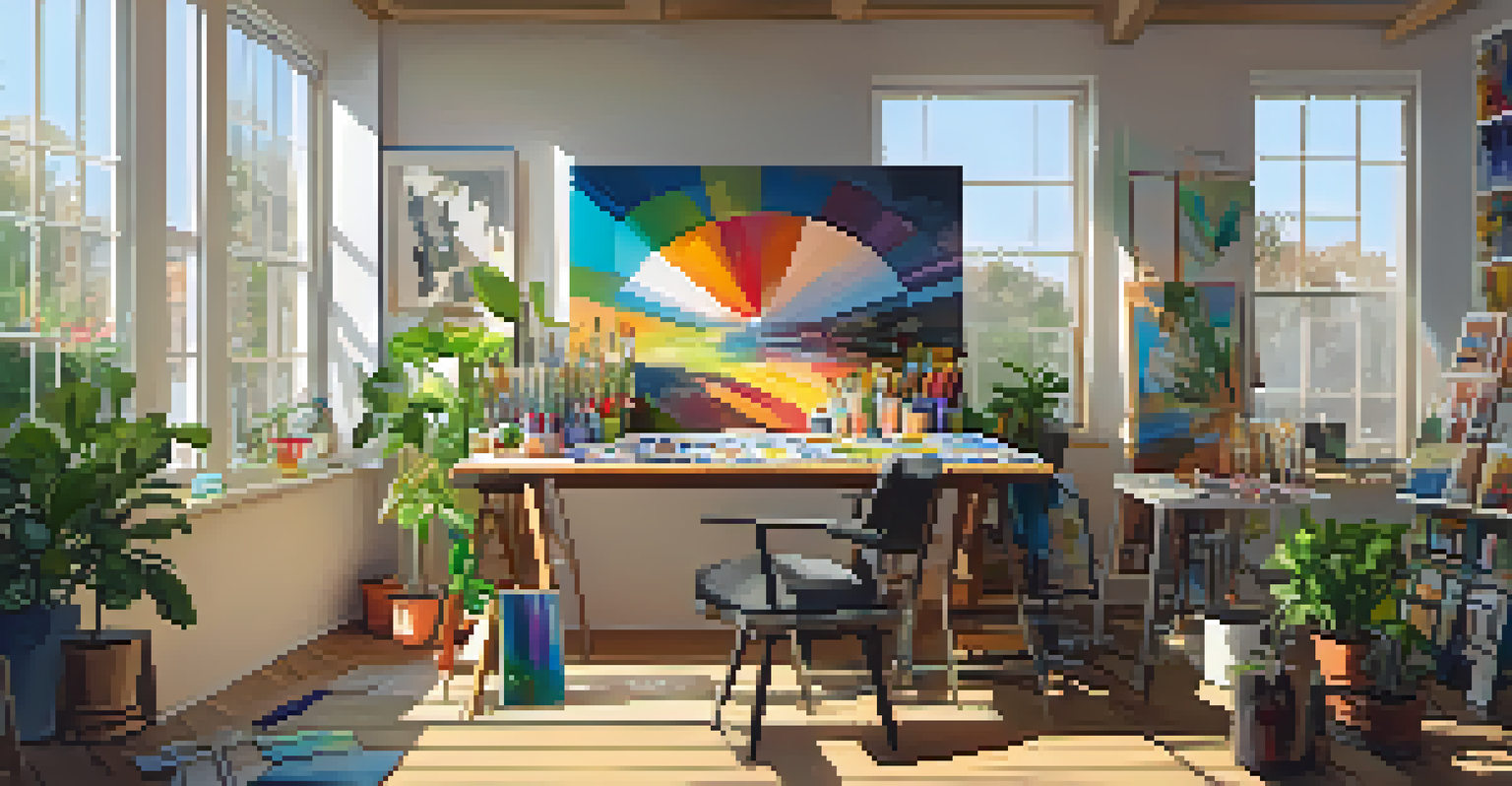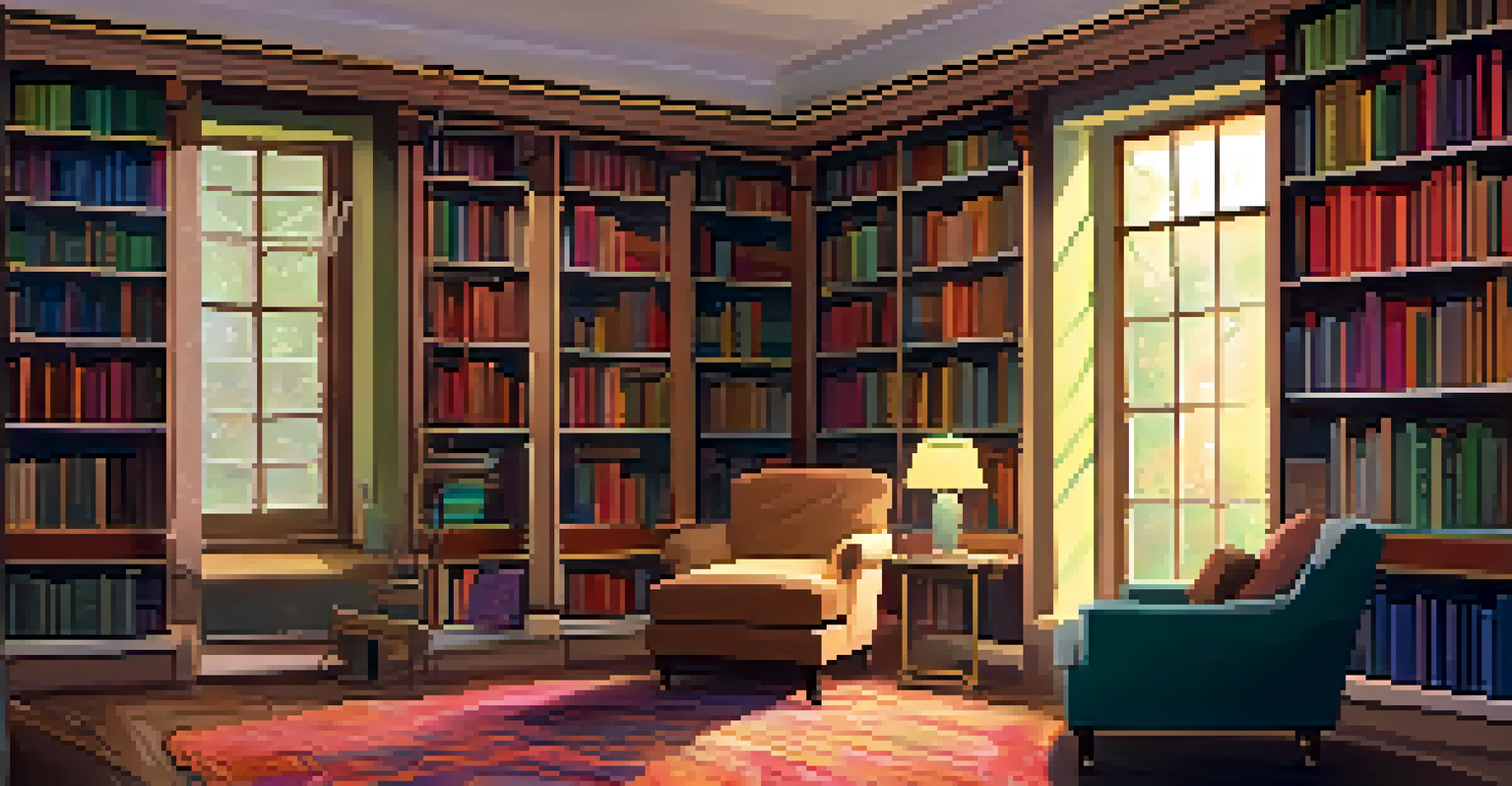Hallucinogens and Creativity: Enhancing Our Cognitive Abilities

Understanding Hallucinogens and Their Effects
Hallucinogens are substances that alter perception, mood, and cognitive processes. They can create profound changes in consciousness, often leading to experiences that feel otherworldly. Common hallucinogens include LSD, psilocybin (found in magic mushrooms), and mescaline, each with unique effects on the brain.
I think that the creative process is one of the most important processes in the world; it creates the future.
These substances primarily impact serotonin receptors, particularly the 5-HT2A receptor, which plays a crucial role in mood regulation and cognition. By influencing these receptors, hallucinogens can enhance sensory perception, emotional depth, and even creative thinking. This is why many artists and musicians have historically turned to these substances for inspiration.
While the experiences can vary greatly among individuals, there is a growing body of research suggesting that hallucinogens can facilitate out-of-the-box thinking. This shift in perspective can lead to innovative ideas and solutions, making them a topic of interest in both psychological and artistic communities.
The Connection Between Hallucinogens and Creativity
Numerous studies have explored the intriguing link between hallucinogens and creative thinking. For instance, research indicates that individuals under the influence of substances like psilocybin often report increased openness to new experiences, a trait closely associated with creativity. This openness allows for a broader range of thought and enhances problem-solving capabilities.

Artists, writers, and musicians have often recounted how hallucinogens have helped them break through creative blocks. When conventional thinking patterns are disrupted, it can lead to unexpected insights and artistic breakthroughs. For example, famous figures like Aldous Huxley and Steve Jobs have openly discussed how these substances influenced their creative processes.
Hallucinogens Enhance Creativity
Research suggests that hallucinogens can increase openness to new experiences and enhance creative thinking.
However, it’s essential to approach this connection with caution. While hallucinogens can enhance creativity for some, they can also lead to anxiety or disorientation in others. Therefore, the impact of these substances on creativity can be highly individual, depending on personal and contextual factors.
Scientific Studies on Hallucinogens and Creativity
Research into the effects of hallucinogens on creativity is still in its infancy, but growing evidence supports their potential benefits. A study from Johns Hopkins University found that participants who took psilocybin showed increased creative thinking and problem-solving skills. These findings align with anecdotal reports from users who often describe enhanced cognitive flexibility.
The mind is like a parachute. It doesn’t work if it is not open.
Another intriguing aspect of this research is the concept of 'default mode network' (DMN) activity in the brain. Hallucinogens appear to decrease activity in the DMN, which is associated with self-referential thinking and mind-wandering. This reduction may pave the way for more original thoughts, as individuals become less confined by conventional thinking.
While these studies are promising, further research is needed to understand the long-term effects and potential therapeutic applications of hallucinogens in enhancing creativity. As the stigma surrounding these substances decreases, more scientists are likely to explore their cognitive benefits.
Hallucinogens and Problem-Solving Skills
One of the most fascinating aspects of hallucinogens is their potential to improve problem-solving skills. Users often report an enhanced ability to see connections between seemingly unrelated concepts. This ability to synthesize diverse ideas can be incredibly beneficial in creative fields, where innovation is key.
For instance, a group of researchers conducted an experiment where participants were tasked with solving complex puzzles while under the influence of psilocybin. The results indicated that those who consumed the substance were more adept at producing unique solutions compared to a control group. This suggests that hallucinogens may encourage a more fluid and flexible approach to problem-solving.
Cultural Views on Hallucinogens
Different cultures have historically recognized the connection between hallucinogens and creativity, viewing them as tools for inspiration.
This newfound cognitive flexibility allows individuals to step outside their usual thought patterns and explore new possibilities. While it's important to note that not everyone will experience these benefits, the potential for enhanced problem-solving is a compelling reason for further exploration into the relationship between hallucinogens and creativity.
Cultural Perspectives on Hallucinogens and Creativity
Throughout history, various cultures have recognized the link between hallucinogens and creativity. Indigenous peoples in the Americas, for example, have used substances like peyote and ayahuasca in spiritual rituals, believing that these experiences connect them to creative forces. These practices highlight the long-standing view that hallucinogens can facilitate profound insights.
In modern times, artists and thinkers have embraced this connection, often using hallucinogens to enhance their creative processes. The 1960s counterculture movement popularized the idea that psychedelics could unlock new realms of thought and self-expression. This cultural backdrop has influenced how we perceive the role of these substances in creativity.
However, it's crucial to recognize that cultural attitudes toward hallucinogens vary widely. In some societies, they are viewed as sacred tools for inspiration, while in others, they carry significant stigma. Understanding these cultural contexts can provide a more nuanced view of how hallucinogens can influence creativity across different communities.
Potential Risks and Considerations
While the potential for enhanced creativity is enticing, it's essential to consider the risks associated with hallucinogen use. These substances can provoke intense emotional experiences, and for some, this may lead to anxiety or paranoia. It's crucial for individuals to weigh these risks against the potential benefits before exploring hallucinogens as a creative tool.
Moreover, the legal status of hallucinogens varies by jurisdiction, which can complicate their use for creative purposes. In many places, possession and consumption remain illegal, posing legal risks for users. Therefore, it’s important to stay informed about local laws and regulations surrounding these substances.
Risks of Hallucinogen Use
While hallucinogens can boost creativity, they also carry risks such as anxiety and legal issues that users must consider.
Lastly, the environment in which hallucinogens are consumed plays a significant role in the overall experience. A safe, supportive setting can foster positive experiences, while a negative environment may lead to adverse reactions. For those considering this route, being mindful of these factors is essential to maximize the potential benefits of hallucinogens.
Future Directions in Research on Hallucinogens and Creativity
As the stigma surrounding hallucinogens continues to fade, research into their cognitive effects is likely to expand. Future studies may explore not only the link between hallucinogens and creativity but also their therapeutic potential for mental health conditions. This could pave the way for innovative treatments that harness the benefits of these substances.
Researchers are also keen to investigate the mechanisms behind how hallucinogens enhance creativity. Understanding the brain processes involved could lead to a more comprehensive understanding of cognition itself. This knowledge may also help to develop safe methods for using hallucinogens in creative and therapeutic contexts.

Ultimately, as we delve deeper into the relationship between hallucinogens and creativity, we may uncover new avenues for enhancing cognitive abilities. The intersection of science, art, and consciousness could open doors to new forms of expression and understanding, making this an exciting area for future exploration.